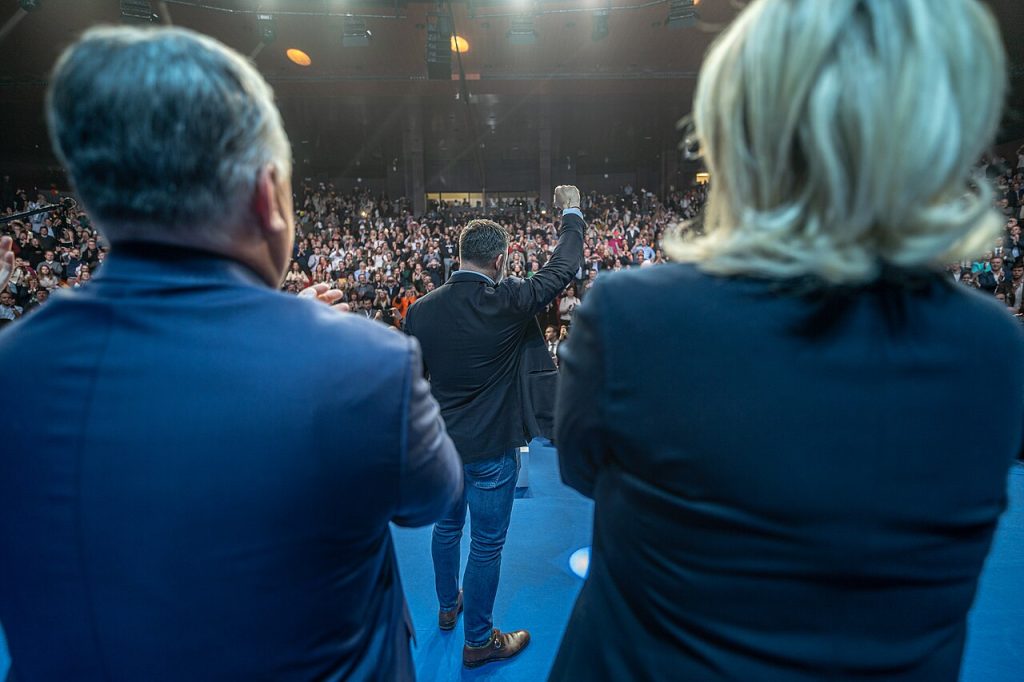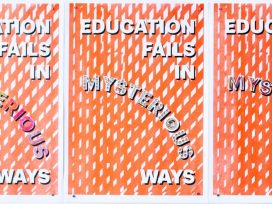Ana Teixeira Pinto: I feel like everybody is writing the same article these days. The argument goes like this: the Left has lost the plot by choosing to fight cultural wars instead of economic ones. ‘Divisive issues’ alienated the working class, which, no longer feeling at home in movements taken over by the ‘woke’ police, broke for Trump or Le Pen. Scornful of ‘identity politics’, which is said to be the opposite of ‘real politics’, the author will gleefully exhibit some bizarre social media post saying something like ‘Anne Frank had white privilege’ to prove that ‘cancel culture’ is ‘toxic’. They will then mobilize terms like ‘inequality’, ‘anti-imperialism’ and ‘comradeship’ or, alternatively, ‘universalism’ against those it accuses of lacking solidarity. Sometimes, the article everyone is writing will begrudgingly accept that BLM and #MeToo had some legitimacy, before they spectacularly backfired with rhetorical excesses like ‘white fragility’ or ‘rape culture’…
To me, the problem with this view is that it reduces movements for gender or racial justice to a preoccupation with ‘special interests’ (a term I once heard at a Marxism conference to describe trans rights), instead of recognizing that what these movements want is to re-open the discussion on what social justice means – that is, the discussion on the distribution of wealth, opportunities and privileges within a society.
Sven Lütticken: One article that I feel is not quite that ‘same article’ that keeps getting rewritten was by Gabriel Winant, published in Dissent shortly after the Harris debacle. Despite arguing that the Democrats had time and again opted for business as usual, ignoring working class voters’ concerns, he avoided pitting those concerns against some kind of spectre of wokeness. To quote Winant at length: ‘At each juncture, the Democrats have attempted restoration: to manage the crisis, carry out the bailout, stitch things back together, and try to get back to normal. It is the form of this orientation, as much as substantive questions of culture, race, and gender, that seems to me the fundamental reason the Democrats are often experienced as a force of inhibition rather than empowerment by so many voters. And it is against this politics of containment that Trump’s obscenity comes to feel like a liberation for so many.’
Part of this obscenity is precisely the thrill of dehumanization, as whiteness and straight cis-maleness are reasserted as markers of full citizenship and personhood, while others are (at times dramatically) denied the same. Transphobia, for instance, is not some kind of natural response that we should be careful not to ‘feed’, but a reflex that has been relentlessly fanned through scare stories on right-wing media. Having said that, I think that a real critique of liberal identity politics is needed – not in the sense of woke-bashing, which is where some on the left risk becoming complicit with the far right. While far-right cultural warfare is of course key, I’m not at all convinced that liberal identity politics – with its substitution of lifestyle tropes and sermonizing for a politics that would conceive of anti-racism and women’s and trans rights as an integral and non-negotiable part of an emancipatory political project – has been helpful.

On stage at the Patriots.eu summit in Madrid, February 2025. Author: Vox España / Source: Wikimedia Commons
Ana Teixeira Pinto: Here is where things get tricky, because we don’t all inhabit the same social space. One standard argument would be to say that criticism, however harsh, is salutary because it disturbs the vision of yourself that you carry around, or punctures the fantasy of being in control, thus making room for political growth. But if you grew up as a member of a racialized minority, you don’t need society to further disturb your vision of yourself. You have already experienced the crushing force of structural hostility; what you need is to see that experience recognized. The question then becomes: who is entitled to what?
Let me try to be clearer. Writing about the US higher-ed encampments, Sam Adler-Bell noted that, ‘in the past several decades, college administrators embraced the idea that students need to feel seen and vindicated in their identities. Certain political speech became grounds for punishment. The war in Gaza brought this regime to crisis. Activists had every right to express outrage about the atrocities in Gaza; at the same time, it was not unreasonable for Jewish students to expect to be protected from speech that imperiled their senses of self.’
I have no doubts that protesters have the right to oppose war crimes, but I can’t laugh off Jewish students’ feeling of being ‘unsafe’ merely as an expression of entitlement – particularly not in Europe, where antisemitism is palpable. This is not the weaponized vulnerability of Incels or Terfs. To retort that ‘you are not feeling unsafe you are just feeling uncomfortable’ does not acknowledge that the line between the two is a fine one. As Lauren Berlant argues, as an affect, inconvenience can encompass all kinds of intensity. At the same time, Arab or Arab-looking teenagers in Berlin, like the afro-deutsche son of a friend of mine, are routinely harrassed in the streets, and I can’t engage in tone policing Palestinian protesters, because their experience of being imperiled urgently demands validation. If I stay within this frame I am not hoping to find a resolution, I am just weighing competing demands. This is why I feel the need to move the discussion away from the terrain of affect and ask who the primary targets of state and state sanctioned violence are at this particular moment in time.
Sven Lütticken: Good points. I think it’s crucial to keep asking oneself those questions while remaining attentive to complexities and contradictions – without using those as an alibi for quietism. Take an example from the oh-so-liberal Netherlands: the Vrijmoedige Studentenpartij, a student party which espouses the full roster of anti-woke politics and seems to have been modeled after Thierry Baudet’s far-right Forum for Democracy. During the 2025 student council elections at the Vrije Universiteit Amsterdam, the party relentlessly campaigned for ‘common sense’, asking: Are you afraid to say that there are only two genders? Vote for us!
Here, we see a certain kind of weaponized white cis snowflakeyness – we are being oppressed because we can’t say what we want to say, and we’re saying that loudly, continuously, on all channels. It takes the form of ‘gender madness’ dog-whistles that do not so much imperil queer and trans students’ ‘sense of self’ as threaten their right to be in a shared academic space without fear of verbal or physical attacks. Of course, this right applies to all students and staff members; but in the fog of war, the ‘threat to the self’ is unfortunately often instrumentalized of in the service of hegemonic Staatsräson. When any criticism of Israel is cast as antisemitic, this undermines attempts to combat those anti-Israel positions that do use antisemitic tropes, and strengthens precisely the kind of psychological self-checkmate described by Adler Bell.
Ana Teixeira Pinto: I want to return to your point about the ‘thrill of dehumanization’, because this is where I would locate a critique of cultural politics, including so-called ‘call-out culture’, which I see as a feature of social media, or rather, its business model. It involves the normalization of hatred via affective polarization and the loss of inhibitions afforded by anonymity. Incels, for instance, feel isolated and seek solace in online forums. But online communities facilitate peer pressure and surveillance, as well as opening one’s intimacy to audiences who amplify one’s isolation and misery. I think these dynamics are at play in other forums, too, albeit in a diluted form, and this is where we ought to turn our attention if we want to discuss the ‘thrill of dehumanization’.
The left is not immune to this, because if you are operating inside an attention economy, ‘put-downs’ are the most viable strategy to get clicks and likes. Again, here the logic of dehumanization inheres in the business model. There is nothing emancipatory in losing one’s sense of shame, since shame is a social emotion. You see the results in the UK Supreme Court decision about the meaning of ‘woman’, which was a petty and mean-spirited attack on trans women that would not have been possible without an endless stream of vile YouTube podcasts vilifying activists, doctors, schools…
Sven Lütticken: Should we drop the F-bomb at this point? Much ink has been spilled on debating the conceptual and analytical relevance (or lack thereof) of the term fascism for the contemporary conjuncture. There are obviously many specifics that cannot easily be folded back onto the 1920s and 1930s, yet there are also strong continuities and repetitions. Then there is the fact that even the most obvious candidates reject the label, claiming the right to self-identify: don’t you dare call me a fascist, says the fascist. Such coy creatures!
Against this fascism-that-dare-not-speak-its-name, the term does have use value and propositional pull. However, a more useful concept might be fascization, which denotes a tendency that also involves many conservative actors and institutions. I keep returning to that song by The Fall: ‘Who makes the Nazis?’ What are the factors involved, the forms of subjectivation, the formations of subjectivity?
Ana Teixeira Pinto: I would call it ‘fascism without fascists’. Take Germany: the current war on Gaza has been captured by the narrative of the clash of civilizations and the alleged ‘Islamic threat’. All political parties are united in their racism and hatred of migrants. The shameless dehumanization of Palestinians in particular, and Arabs in general, works in tandem with – and under the aegis of – the withdrawal of legal protections.
At the same time, the political centre prides itself on being a ‘firewall’ against the far right, while accommodating police brutality, exhibiting a gleeful disregard for civil rights, implementing gangster tactics, and eroding domestic and international law. For all its distaste for Trump, Germany is also deporting immigrants for taking part in protests. EU citizens are also being threatened with deportation. When nations unmake citizens, we enter fascist territory.
State censorship, one could argue, is being mobilized to guarantee freedom from social censure. But these measures are also paving the way for ethno-national states in which immigrants have no civil rights – especially not the rights of assembly and free speech. The notion of ‘imported antisemitism’ marks migrants as a ‘threat from outside’, mirroring the Nazi vision of Jews as a threat to social cohesion. I wonder if Germany is ready to deport Jewish residents if they are caught protesting Israel. In any case, it is clear that the AfD does not need to be in power for its policies to be implemented.
Sven Lütticken: Fascization relies crucially on solidarity: the unspoken solidarity of white, well-educated, middle-class men and women. This is the affective and transsubjective infrastructure of Staatsräson; this is what makes the DNC fundamentally complicit with MAGA Republicans. You may find yourself tutting at the AfD, wringing your hands, yet unable to think of ‘fighting fascism’ in any other terms than restoring some kind of old normal – an old normal that, in its reliance on constitutive exclusions, was a ready-made matrix for the AfD and Merz’s CDU. When, as academics, we continue to normalize colleagues who we know to have thrown vulnerable POC students under the bus, wrecking their careers within hours because of some social media post, then we’re basically signing some kind of White Solidarity Contract, tacitly saying that this is all just a matter of personal ethics that need not get in the way of the next symposium or edited volume.
In Bong Joon Ho’s sci-fi satire Mickey 17, a spaceship attempts to colonize a faraway planet in order to save the human race – but, as far as the politico-corporate-religious leader Kenneth Marshall and his sauce-making wife Ylfa (played by Mark Ruffalo and Toni Colette) are concerned, mostly the white race. While Ruffalo’s performance has Trumpian overtones, he also appears to have studied any number of televangelists – and the Christian fundamentalist element in contemporary fascization (gender wars, Zionist end-times fantasies) should not be underestimated.
Structurally speaking, however, this character and his people/army of colonizers represents the political, financial and media establishment more broadly, insofar as it is predicated on restoration, on saving the system, which is another way of saying: shoring up privilege. This is the lie of the Green New Deal and similar propositions: the promise that the Global North can essentially continue as it did during the post-war Pax Americana, but with technology and energy having become magically clean. In this respect, at least, the fascists are more honest. Drill, baby, drill.
Ana Teixeira Pinto: I don’t think they are more honest. Hostility and prejudice are expressed in the language of principles, so they say ‘we must protect women’, or ‘we must protect Jewish life’, or ‘we must protect workers’, instead of saying ‘I hate trans-women’, or ‘I hate Arabs’, or ‘I hate migrants’. Granted, some, very few, are candid about their views, but the vast majority is still speaking in code. Look at Trump: he says tariffs are needed to bring jobs back. He does not say, ‘I want the US to become Russia in the 90s’, but it’s clear he is trying to crash the economy, not reindustrialize it.
Sven Lütticken: Which is why, among the more sensitive members of the academic and cultural class – and I use sensitive here as being attuned to the tremors of the present, sensitive to the accelerating catastrophe – there is a sense that ‘learning from the Global South’ is deeply necessary. For indigenous cultures, the End of the World has already happened. Now that we have to get used to being able to imagine the end of the world, rather than the end of capitalism, there is a process of becoming indigenous, as well becoming-Black (to invoke Mbembe), in the sense of a general condition whose violence is felt unevenly. Some of this gets translated into a kind of cosmological-epistemological kitsch that I feel is disturbingly attractive to guilt-ridden liberal academics, who will ultimately always make everything about feeling good about themselves – but that’s par for the course.
Ana Teixeira Pinto: Neo-ancestrality is quite formulaic as a style and I am also not partial to the flight to the spiritual. But there is something I find equally kitschy, and that’s the fetish for scale. From the perspective of the western left, any form of engagement with situated struggles or localized dissent feels like a foreclosure of the global. The left also tends to dramatize the epic dimension of salvation and dismiss survival. But the opposite of annihilation is not salvation, it is endurance: the myriad ways in which people manage somehow to make it, in what constitutes a form of resilience without redemption.
Sven Lütticken: Yes, I think it’s true that endurance, survival, surviving, survivance are being revalorized for good reason. The interest in maronnage and quilombos comes largely from this, starting with Harney and Moten on maroon communities. This was even before Trump, but now many more find themselves in a position where this analysis should make a lot of sense. There is a certain kind of historical irony – historical karma, perhaps – in this, if we recall that during the 1930s the Comintern reneged on its commitment to the Black struggle and reverted to considering Black workers as a ‘special interest’ group, to go back to that term.
One conceptual conflict emerges here in that the majoritarian discourse in the German-speaking world is largely beholden to Tönnies’ distinction between Gesellschaft and Gemeinschaft – and perhaps to some extent to Helmuth Plessner’s liberal critique of the communal, gemeinschaftliche tendencies in early-twentieth-century German culture. There is a tendency to pit the Gesellschaft as grounded in legislation and thereby inclusive and reasonable (some Habermas is usually in the mix) against communities that are seen as potentially violent and intolerant. One could see this in crude critiques of Documenta 15, where the Lumbung community was cast in the role of an antisemitic Gemeinschaft.
Now, that community certainly failed in some respects, since it seemed unable to address the use of anti-imperialist, antisemitic tropes in some of Taring Padi’s work, and was apparently unable to recognize how these would register in Germany. So yes, communities are not to be cast in a utopian light. One question would be how what Daniel Loick calls Gegengemeinschaften or counter-communities can have checks and balances, and how they can then structure agonism.
One way or another: in the face of a fascizing Staatsgewalt (in the US, in Germany and elsewhere) that reveals the necropolitical underbelly of Universal Reason, it is no wonder that (counter-)communities that offer some degree of protection, and allow people to breathe and speak, are spaces of refuge. And perhaps concatenations of counter-communities could amount to a kind of Gegengesellschaft – or Parallelgesellschaft, to use that storied German term.
Ana Teixeira Pinto: Perhaps a better concept is the opposition between nation (a body politic united by culture, history and language) and state (an organized political community under one government). Here I am a statist anti-nationalist. But now I am going to be very sentimental: some time ago, commenting on solidarity or lack thereof, an artist told me ‘the Arab community demands solidarity on their own terms without addressing anti-Blackness in the Arab world’. This statement struck me as a more sophisticated version of the ‘chickens voting for KFC’ argument, in the sense that it posits a transactional matrix: you should not help those who do not share your values because they would not reciprocate. I think that solidarity builds community not the other way around. I didn’t respond but I will now: ‘to each according to their needs’.







